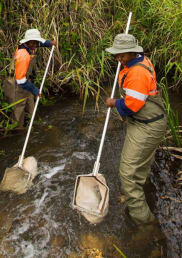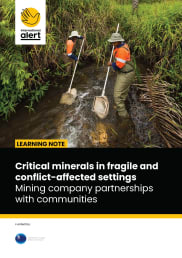Too little peace in our time
War in Syria. War in Yemen. War in Afghanistan. Major conflict continuing in Iraq, Somalia, Congo, Nigeria and Mali. Burning disputes in at least two dozen more locations, ranging from Ukraine and Kashmir, to Myanmar and Colombia. Around the world, peoples in crisis – and their neighbours – struggle to live with the daunting consequences of violence: economic, social and political upheaval, unprecedented refugee flows, and widespread suffering and loss of life. They desperately need help.

Unfortunately, the rise in conflict we see today has not been matched by a corresponding increase in global capacity to meet this challenge, nor by greater political appetite on the part of key international actors to intervene. Indeed, some major powers appear absorbed with internal issues and short- term interests to the detriment of collaborating on long-term solutions. I believe this situation has placed a considerable premium on engagement by peacebuilding NGOs that work directly with people at the grassroots level and – resources permitting – are in for the long haul.
But is there a solution? What can realistically be done to prevent fighting, contain tensions and advance peace?
One answer is to empower people to resolve their differences peacefully and to beat the drum for managing any conflict that does arise with compassion and wisdom, not anger and violence. Coupled with this is the importance of fostering forgiveness and reconciliation; helping groups come to terms with others who engaged in earlier clashes. These activities centre around breaking cycles of violence and building cycles of peace – the thrust of International Alert’s new five-year strategy. Our goal is to make peacebuilding become so familiar at the community, national and international level that it develops a self-reinforcing, self-perpetuating momentum of its own.
Recently, I visited Lebanon’s Bekaa Valley to witness our strategy in action. There, Alert’s team has brought together local residents and Syrian refugees to foster a dialogue to build understanding and cooperation. All declared that not only was this needed, but also that the programme is working! In fact, Lebanese participants lamented that, had such an effort been undertaken when Palestinian refugees first arrived, the past few decades would have been much easier.
In Rwanda, now marking the 25th anniversary of its unthinkable genocide against the Tutsi, Alert is addressing the other end of this equation, helping Hutu and Tutsi communities recover from tragedy and build forgiveness.
Today, we are working with dedicated partners in 21 countries and territories, engaging and supporting over 143,000 people. Our programmes include reducing land-related conflicts in the DRC; building the capacity of journalists in the South Caucasus to provide people- focused, conflict-sensitive reporting; encouraging young Nigerian leaders to stop stigmatising those returning from Boko Haram captivity; helping maintain a conflict-monitoring system in the Bangsamoro (Philippines); and promoting the inclusion of marginalised groups in the Tunisian democratic process. Alert is doing all it can to break cycles of violence and help communities around the world build lasting and sustainable peace.
Our beneficial work would never have been possible without the strong backing of key strategic donors, especially the Dutch Ministry of Foreign Affairs, Ireland’s Department of Foreign Affairs & Trade, and the Swedish International Development Agency. We owe you an enduring debt of gratitude for all you have done to champion peacebuilding and support International Alert’s work and we look forward to working with you and all our many donors across the world to break cycles of violence and build cycles of peace.






